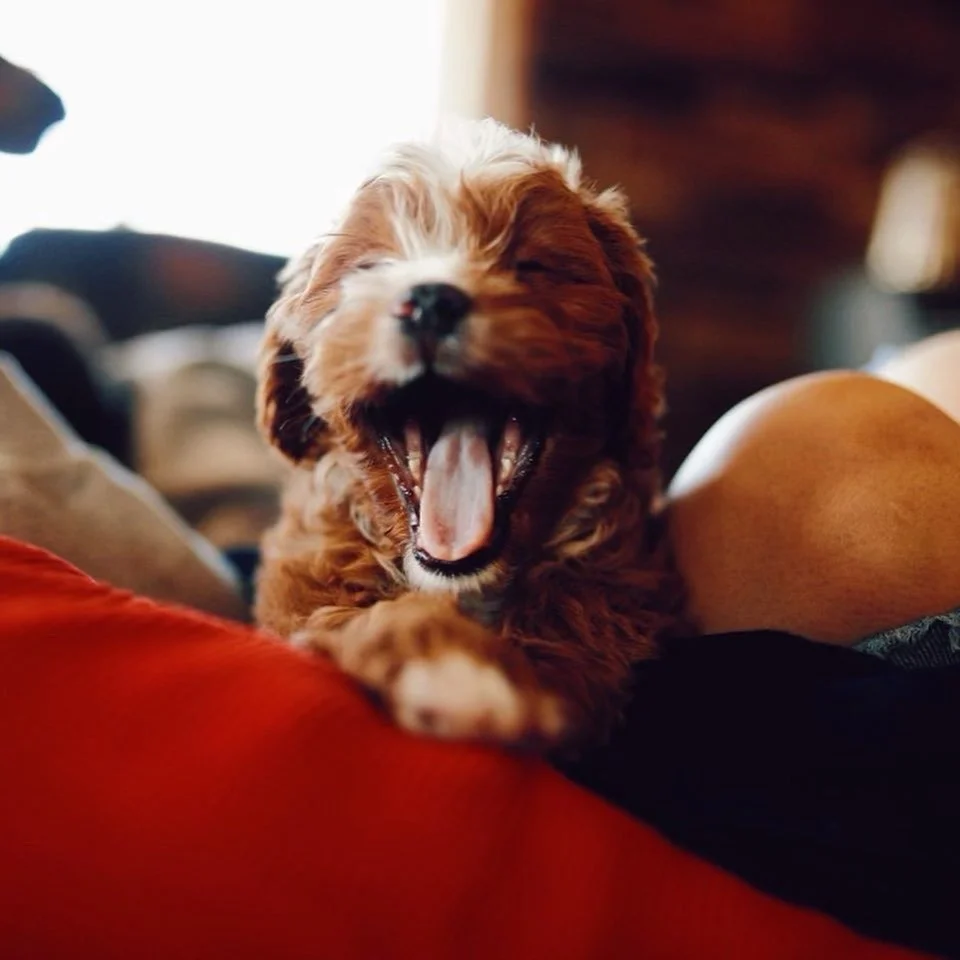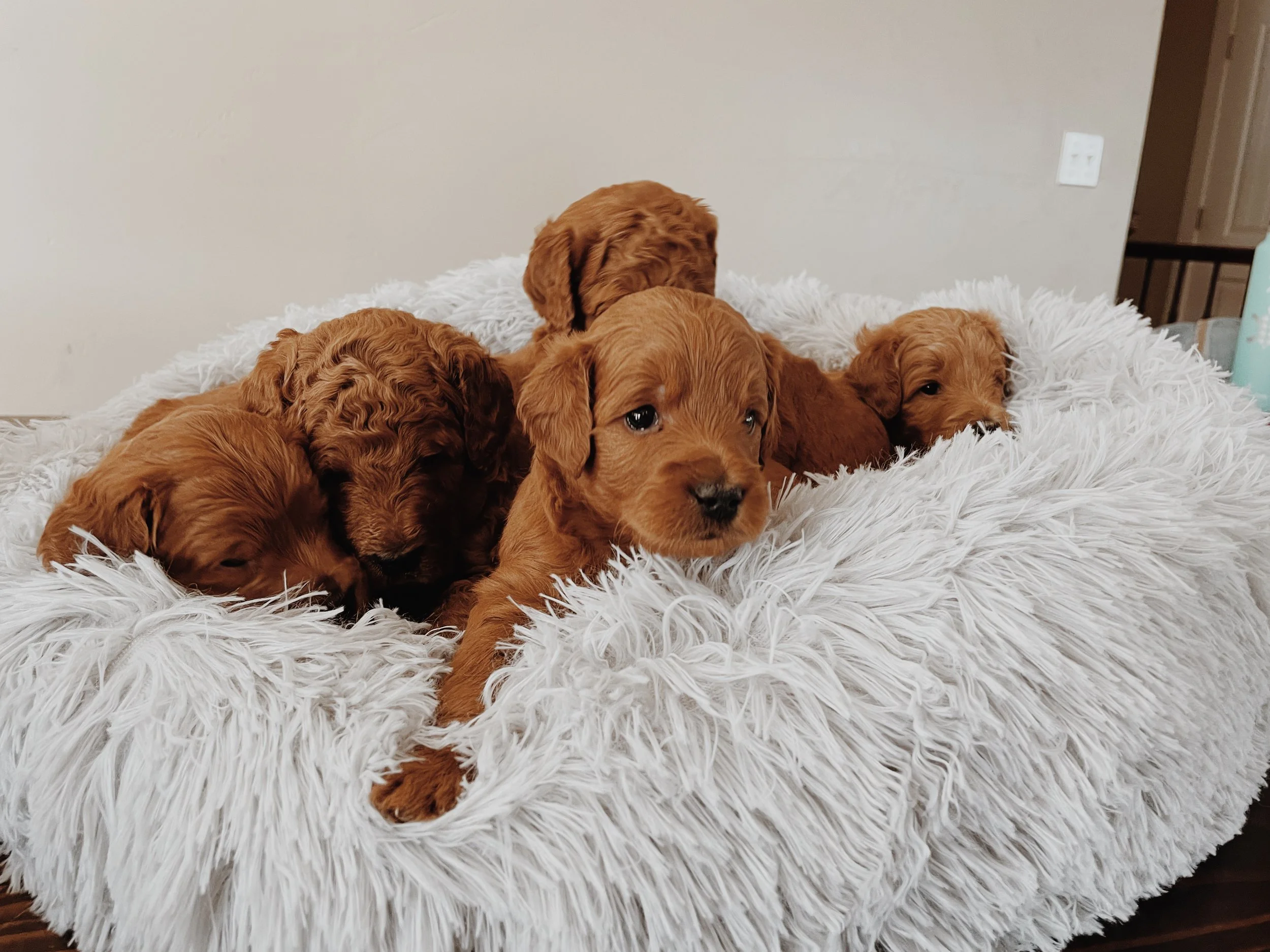
Welcome to Grace’s Puppies Family!
Bringing your puppy home.
Puppy Proofing.
Once you bring your puppy home, he or she will be teething. Meaning their teeth will be growing which causes some pain. To release some of this pain they will chew on anything they can find! So if you have any shoes, furniture, cords, blankets, etc. that you don’t want to be chewed up, put them away or don’t leave your pup alone with these objects.
Parks & safety.
When taking your pup to a dog park be very careful. Keep in mind that there could be older dogs who are not trained or socialized that can hurt your puppy by attacking him or her and sadly even potentially killing him or her. Along with dogs that could potentially have diseases which could make your puppy really sick. We recommend having your pup on a long line (very long leash) this way you can save your puppy if you need too.
Transition.
Keep the house completely calm and stress-free for three days to a week (no new visitors). Parvo can be brought inside on shoes so be sure to “know your visitors” if you’re going to have company over and keep your puppy away from shoes etc. Do not wake your puppy unless necessary. Puppies sleep an incredible amount of time. Do not worry. As long as your pup wakes up with puppy energy, silliness, eats well, drinks well, goes potty, then all is good!
Routine.
Creating a routine for you and your puppy is important. Guiding your pup as a leader with confidence, love, respect, and reassurance is vital for a happy, calm and loving dog. However, leave some room for spontaneous activities, this is good for mental health and testing your dog’s obedience. Again, we highly recommend Cesar Millan’s online training courses and the book Family Dog by Richard A. Wolters.
Feeding.
I have offered your puppy and the rest of his litters mates free choice feeding. I recommend you follow the guide lines on the puppy food you have chosen and to feed 3x a day until your puppy is an adult. Allow 15 to 20 minutes for your puppy to eat. If he or she chooses not to eat, take away the food. Your puppy will learn quickly when meal time is and to eat. Mushy poop is common with stress, please do not fret. Continue to feed/encourage your puppy to eat. Give your puppy about five days. If after 3 days your puppy is still not energetic, has a loose stool, is not eating much - we recommend visiting your vet. Do not feed ANY treats (including bones, etc.). Just your puppy’s puppy food till he is settled in. You don’t want to cause an upset tummy due to food or treats. Upset tummies create a nice environment for parasites. No table food either!
My puppies & adult dogs love Nutrena’s Loyall Life Puppy Food!
Keeping Your Puppy SAFE.
Your puppy is not fully immunized until they are 12 to 14 weeks old. The rabies shot is administered at 3 months old. Remember to refer back to your puppy’s health record in the Buyer’s Contract. It is up to you to keep your puppy safe from diseases and up to date on immunizations.
When to worry:
1. Poop contains mucus or blood. If this happens, feed a bland diet for 24 hours and if the condition remains after this time period, a fecal test might be in order.
2. Puppy is lethargic, does not play with some vigor and or refuses to eat.
3. Puppy cannot poop and vomits. This can indicate he or she ate something and has a blockage. This is an emergency. Seek immediate veterinary care.
4. Liquid poop. Be careful. A puppy can dehydrate quickly, so if poop does not improve quickly, then a visit to the veterinarian will be needed.
We hope this makes the transition for your puppy easier and healthier. Thank you for ensuring their safety and well-being!

GPF Training Guide
I raise my puppies focusing on Love & Respect. For a lifelong & happy relationship with your dog it's important to remember not to humanize your dog. Remember your dog is from the canine family not the human family. Give yourself the role of being the pack leader. Teach your pup that calm & respectful energy is the best energy. Your pup has been with his or her littermates since the beginning. They have all found their “place” in the litter. Their place in the litter has been defined by their energy. Their littermates have taught each other boundaries, respect & love. Now that your pup has left his litter to join you and your lifestyle, you will have to enforce boundaries, respect and love and most importantly be his/her calm & assertive pack leader. To learn more we encourage checking out Cesar Millan and his training videos and Family Dog by Richard A. Wolters.
Your puppy has been trained to use a pee pad/grate system. If you would like to continue his or her potty training with the pee-pad system, let me know and I will send you the links of where to purchase the supplies. If you would like to potty train your puppy to go outside, we recommend crate training.
I love my puppies and enjoy starting their training with the limited time I have. I can’t express enough on how important training is for a happy, lifelong relationship with your puppy.
-

Crate Training
Crate training is a great way to transition your puppy to go potty outside. We start your puppy on crate training. He/she learns that the crate is a happy, peaceful place in which he rests. A simple schedule you can go by to get you going on crate training with your pup is to have your puppy sleep in the crate at night and anytime during the day when he naps. I also recommend moving your puppy around the house in the crate. For example, one day have your puppy in the dining room or kitchen in his crate where it is a very active area. Then a couple days later move him into a bedroom or office where it’s a littler quieter. What this accomplishes is it teaches your puppy that being in the crate anywhere is okay and normal. So when you travel or if you ever board your puppy, he will be okay and won’t have anxiety. Crating your puppy frequently and in different rooms where you are not around will also help prevent separation anxiety.
-

Separation Anxiety
“Separation anxiety in dogs describes a condition in which a dog exhibits distress and behavior problems when separated from its handler. Separation anxiety typically manifests within minutes of departure of the handler.”
To prevent Separation Anxiety in your puppy you will need to teach your puppy now from the moment you pick him or her up that it is okay if he is not with you all the time. Do not comfort your puppy when he or she whines for attention. This is a disservice to your puppy and will cause him or her extreme amounts of anxiety in the future when you leave him or her alone which is bound to happen at some point in your puppy’s life. Dogs whom have Separation Anxiety will exhibit excessive amounts of whining/barking, chewing up his or her’s bed, toys, and even crate. If left alone in the house, some dogs have ripped the entire house apart. Your puppy does not have separation anxiety, this is caused by humans not training their puppy correctly. Just remember to teach your puppy that it is okay for him or her to be alone.
Confidence, Love, Respect & Reassurance.
Confidence.
Confidence is key. I’m sure you’ve heard this phrase before and this couldn’t be more true when raising your puppy! Canines still have pack instincts just like their ancestors who actually ran in packs. Your pup is going to automatically look for a leader in his or hers new environment (your home). If your a family or couple, you need to choose one individual to be your pups leader. This individual needs to have confidence, love, respect, reassurance, and lots of patience with your pup’s training. This doesn’t mean another family member can’t tell your pup to sit, it just means your dog needs to know who the leader is in his pack and make sure your family is giving your puppy consistent training cues.
Love & respect.
This one is pretty easy! When your pup knows you respect him or her and love them, your relationship will flourish making training much easier. If your looking for a therapy dog, we recommend seeking a professional therapy dog trainer to help train you and your pup. If your pup is just going to be your companion have respect for their boundaries, and of course love them unconditionally because your pup will love you!
Reassurance.
When training your pup, whether it be a new trick, certain command, or behavior, don’t pressure your pup only reassure them. If he is not understanding what you want of him take a break and come back later. Remember your pup is quite young and pressuring your pup will result in a loss of respect which will lead to a strain in training. Having confidence, love, respect, and reassurance are key to having a great relationship with your pup.
“It means the world to me that you have chosen me as your breeder. I have done my very best from selecting healthy, good tempered parents, to ethical breeding, countless hours whelping, checking newborn puppies, taking care of mom, to raising your puppy the best way I can to prepare him or her for a happy life. I miss my puppies but it makes me incredibly happy to see the joy in your eyes when I give you your puppy. I love to see and hear updates from you and your puppy so please don’t hesitate to reach out!”
I wish you and your pup the best!
With love,
Grace
Grace, Grace’s Puppies










